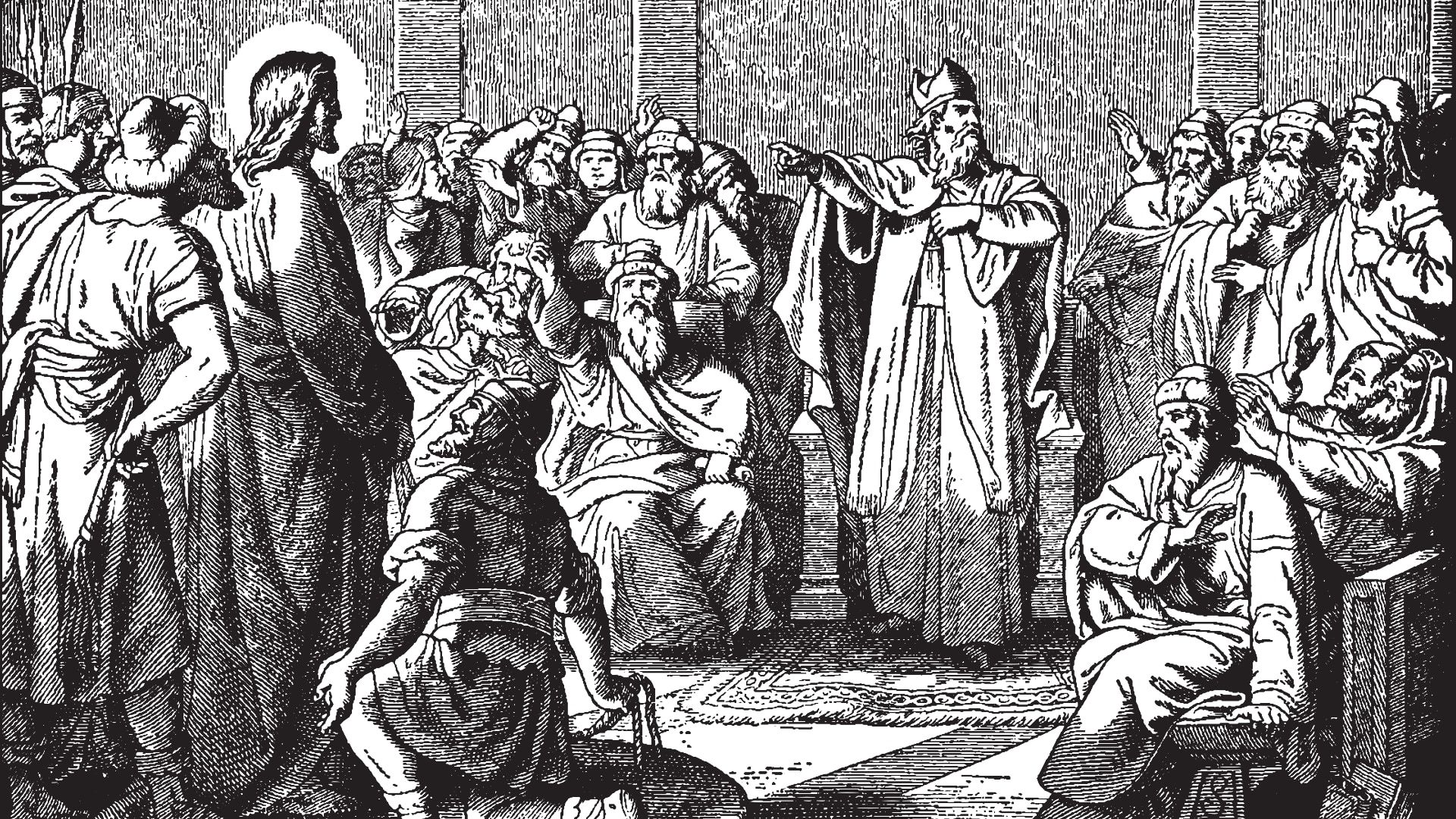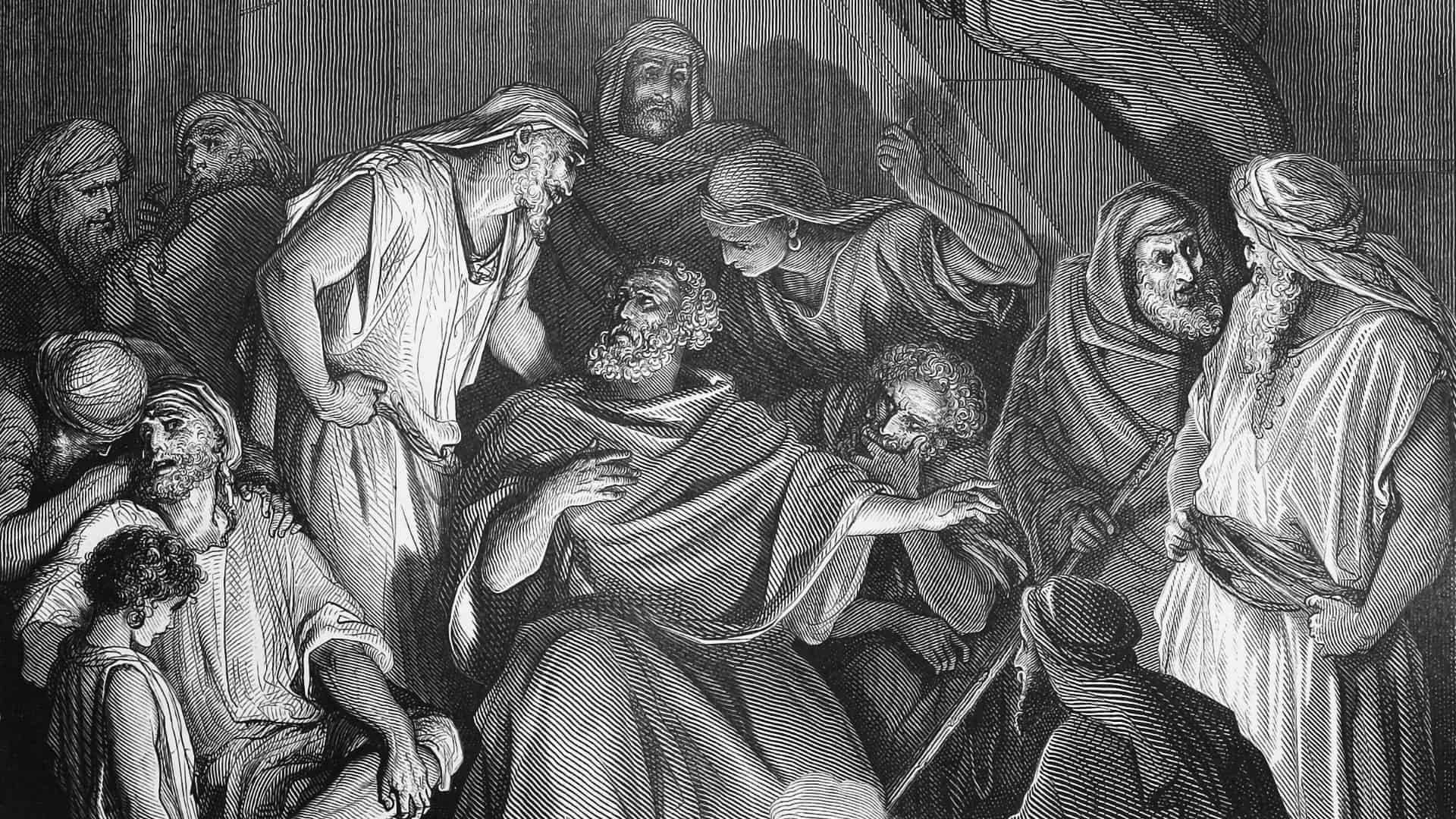The Beginning of the End (Mark 13)

This morning we are looking at one of the most challenging passages in the Gospel of Mark, and indeed in all of Scripture. One commentator says that this is “one of the most perplexing chapters in the Bible to understand, for readers and interpreters alike.” And he’s a scholar and a professional interpreter! So we’re in for a lot of fun this morning.
Despite the challenge, this is a crucial passage for us to examine. It’s the final discourse of Jesus with his disciples before his death, and the longest block of teaching in the Gospel of Mark. It has a message that we really need to hear today, although this passage may push us a little. So let’s look at this passage and try to figure out three things: what he’s talking about, what Jesus says about what he’s talking about, and what difference it should make for us today.
First: What is Jesus talking about?
Mark 13 begins like this: “As Jesus was leaving the temple, one of his disciples said to him, ‘Look, Teacher! What massive stones! What magnificent buildings!'” This is really one of the most important verses to notice in this chapter. It tells us what Jesus is going to be talking about in this passage: the temple in Jerusalem. It’s easy to miss this and to get completely sidetracked. Jesus is talking about the temple. And it begins with the disciples being overwhelmed by the temple and admiring its beauty of the temple in Jerusalem.
You probably know that the temple had huge significance for the Jewish nation. It represented the very presence of God among them. God had said in Psalm 132:14 of the temple: “This is my resting place for ever and ever.” So it was a place of huge significance.
Why would they be in awe of the temple? When these events took place, Herod’s temple had been under construction for fifty years, and it still wasn’t finished. Herod had the reputation for being one of the greatest builders ever, and the temple was his crowning achievement. It was massive. The platform on which the temple sat was big enough to hold twelve football fields. The retaining wall around the temple was as high as fifteen stories off the ground. Some of the single stones were as long as sixty feet, and weighed over a million pounds. You couldn’t possibly walk around the temple without being awed at the sheer size and magnitude of the place.
And then there was the beauty. It was said that the temple was the most beautiful building in the entire world at that time. We have some eyewitness accounts. Marcus Agrippa, the grandfather of one of the emperors, visited Jerusalem and could talk of nothing else “but praise for the sanctuary and all that pertained to it.” The historian Josephus wrote that “the exterior wanted nothing that could astound either mind or eye.” The sanctuary was covered with gold and silver, crimson and purple. As you approached Jerusalem, you would sometimes be blinded by the sun reflecting on the gold. It would dazzle you. It’s been said that Jerusalem wasn’t a city that had a temple; it’s more like the temple that had a city. The temple was a huge deal.
As the disciples looked at the temple, they were overwhelmed with its beauty and size. And it’s this that Jesus is going to talk about in this passage.
What does this have to do with us? We don’t have the temple, but we sure have our equivalents. A few years ago I visited the old Bank of Commerce building on King Street, built just after the Depression, you can’t help but marvel at the beauty and opulence of the building. It screams that the bank is secure, and that when everyone has been going broke this bank is going to survive. Don’t forget when it was built, right after the depression. Buildings make a statement. We have buildings all around us that scream that they matter, that they’re permanent, and that they’re going to stand when everything else has fallen.
So the temple is unique in one sense. It represents God’s dwelling place among the people of Israel. But in other ways it represents the crowning achievement of powerful and rich people. It’s part of the national identity and pride of the people who are living at that time. It’s something that inspires awe. It makes you think that it’s going to be around forever.
Let’s ask ourselves the second question: What does Jesus say about the temple?
The disciples marvel as they look at the temple. What does Jesus say?
“Do you see all these great buildings?” replied Jesus. “Not one stone here will be left on another; every one will be thrown down.” (Mark 13:2)
If you were looking at the buildings, this would have been shocking. Don’t forget how big the stones are. Some of them are over a million pounds.
Later, across from the temple on the Mount of Olives – a vantage point with a spectacular view of the building – the disciples asked Jesus to explain. They asked, “Tell us, when will these things happen? And what will be the sign that they are all about to be fulfilled?” They want to know when the temple is going to be destroyed.
If you’re going to understand the rest of this passage, you need to understand that Jesus answers this question. Most of what we’re going to read is not about the end times. It’s about the temple. Jesus begins to describe what’s going to happen in the next 40 years after his ascension. There will be wars, rumors of wars, and earthquakes, he says in verses 5 to 8. The followers of Jesus Christ are going to be persecuted, betrayed by even family, and killed, he says in verses 9-13 – but the gospel will be preached to all nations. The temple itself is going to be desecrated, Jesus says in 14. And it’s truly going to be horrible, says Jesus in verses 15 to 23. People will have to flee from Jerusalem, and they won’t have any time to grab what they need before they leave.
You may buy that Jesus is talking about the destruction of the temple at this point, but you may really struggle with believing me in the next few verses. In verses 24 to 27, Jesus says:
But in those days, following that distress,
“‘the sun will be darkened,
and the moon will not give its light;
the stars will fall from the sky,
and the heavenly bodies will be shaken.’
At that time people will see the Son of Man coming in clouds with great power and glory. And he will send his angels and gather his elect from the four winds, from the ends of the earth to the ends of the heavens. (Mark 13:24-27)
A lot of people have interpreted this as referring to the second coming. But stay with me for a minute here. I think Jesus is still talking about the destruction of the temple. In the Old Testament, the prophets often used cosmic language to describe God’s decisive judgment, particularly on foreign nations. So, for instance, Isaiah described God’s judgment on Babylon:
The stars of heaven and their constellations
will not show their light.
The rising sung will be darkened
and the moon will not give its light
(Isaiah 13:10)
And later on, other Gentile nations including Edom:
All the stars in the sky will be dissolved
and the heavens rolled up like a scroll;
all the starry host will fall
like withered leaves from the vine,
like shriveled figs from the fig tree.
(Isaiah 34:4)
Now Jesus says that God is going to judge the temple in Jerusalem in the same way. Just as God has judged the evil Gentile nations in the past, now God is going to judge his own people as well. This is shocking.
What about verses 26 and 27? Again, that really looks like the second coming, doesn’t it? Here again, Jesus is quoting from an Old Testament prophet. He’s quoting Daniel. If you look carefully at Daniel 7, it is not so much about the second coming as it is about the enthronement of the Son of Man, a name that Jesus used for himself. It’s not about his return to earth as much as it is his coronation. When was Jesus crowned as king? When he ascended to heaven, where he sits at the right hand of God. That’s why Mark could say in verse 30 that this is all going to take place within a generation. We’re going to see in a minute that it actually did.
You know what this means? Mark is saying that God is going to decisively judge the temple. In its place is going to be a new king. People always thought that the authority and power of God rested on the temple. But now, Jesus says, that authority and power is being moved to him. And God is going to gather people from every nation, from ever corner of the earth, to be part of his kingdom. And, Jesus says, “Truly I tell you, this generation will certainly not pass away until all these things have happened.”
That’s exactly what happened. After Jesus ascended to heaven, his followers did receive the persecution he promised in verses 9 to 13. In 70 A.D. the Romans besieged Jerusalem. Josephus describes how terrible it was. People starved and ate their own babies to survive. They fought each other for scraps of dirty food. There was infighting, so that more people were killed by other Jews than the invading Romans. And, indeed, the temple was destroyed. A Roman soldier threw a burning stick onto one of the Temple’s walls. The fire spread quickly and was soon out of control. It was later written:
Caesar ordered the whole city and the temple to be razed to the ground…. All the rest of the wall encompassing the city was so completely leveled to the ground as to leave future visitors to the spot no ground for believing that it had ever been inhabited
And, by the way, the Bible does tell us that Jesus ascended to heaven and became enthroned. Everything in this passage happened just as Jesus said.
There’s one more question that we really need to answer:
What difference does this make for us today?
This is all very interesting, but what difference does it make in our lives today? It makes all the difference in the world.
First: Jesus could say about all that we see as permanent and awesome around us: “Not one stone here will be left on another; every one will be thrown down.” We need to hear this. That Bank of Commerce building that screams permanence: gone. The Houses of Parliament: gone. The universities, the businesses, the stock exchanges: gone. This world and everything in it will pass away. As John wrote: “The world and its desires pass away, but whoever does the will of God lives forever” (1 John 2:17).
Second: Jesus does make a shift to the end of the world at the end of the chapter. We don’t have to wonder how Jesus applies this to us today, because he tells us. Look at verse 37: “What I say to you, I say to everyone: ‘Watch!'” This is so important that he repeats it five times in different ways in this passage. Watch! Be prepared!
Like many of you, I was watching the gold medal hockey game last Sunday afternoon. In the last minute of play in regular time, the USA tied the game. Overtime started. The next goal would decide the game. Up until that point I had been multitasking. I had a newspaper in my hand and I would pick up my laptop during the game.
But when that game went into overtime, I put that newspaper and computer down and watched. The game had my undivided attention. Jesus says in this passage that this world will one day end, and that he will be returning and calling us to account. How should we respond? Not by guessing all the details of what’s going to happen. He calls us to watch, just as closely as I watched that game.
Every time the Bible mentions the end, it’s not to encourage speculation. It’s to get us to live differently now.
But the day of the Lord will come like a thief. The heavens will disappear with a roar; the elements will be destroyed by fire, and the earth and everything done in it will be laid bare. Since everything will be destroyed in this way, what kind of people ought you to be? You ought to live holy and godly lives as you look forward to the day of God and speed its coming. (2 Peter 3:10-12)
Finally: rejoice in the King. This passage tells us that everything will be destroyed, but we have a King who is enthroned and who will reign forever. He is gathering his elect from the four winds, from the ends of the earth, to the ends of the heaven. Those who trust in him will share in his power and glory.
We’re going to sing to that King in a minute. No matter what’s shaken in this world, or in your life, we can rejoice in that King. Heaven and earth will pass away, but his words will not pass away.
And what a King he is. He is a King who died so that we could live forever in his kingdom. Augustine said of him, “Hold fast to Christ. For you, he became temporal, so that you might partake of eternity.” In invite you to come to that King this morning.





